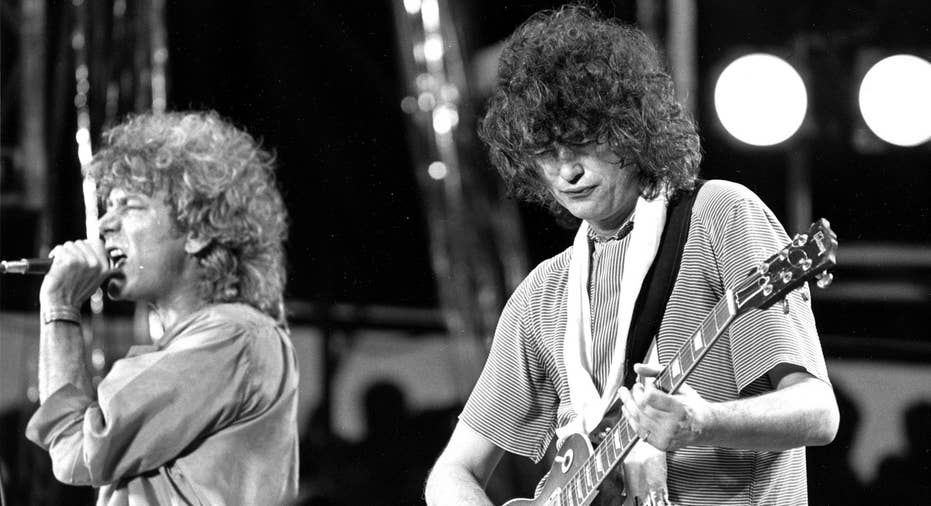Led Zeppelin’s ‘Stairway to Heaven’ Suit All About the ‘Riff’

Led Zeppelin rock legends Robert Plant and Jimmy Page have found themselves in a Los Angeles courtroom over one of the most famous songs in rock and roll history; “Stairway to Heaven.”
The duo is being sued by the estate of Randy Wolfe, also known as Randy California, the guitarist of rock band Spirit, over the 1971 song, which appeared on the album Led Zeppelin IV and sold over 37 million copies. During the late 1960s, Led Zeppelin opened for Spirit during a U.S. tour, around the time when California wrote “Taurus.” California died in 1997.
The lawsuit, first filed in 2014, accuses Led Zeppelin of copying a guitar riff from “Taurus,” an instrumental piece, and using it as the intro to “Stairway.”
In April 2016, U.S. District Judge Gary Klausner decided to let the case proceed, citing the similarities of both songs as a reason for having a jury decide if the Rock and Roll Hall of Famers were subject to copyright infringement.
“They have to prove access and substantial similarity,” said Steve Gordon, an entertainment lawyer and author of “The Future of the Music Business.” “At the end of the day, it is whether a reasonable person can determine if they [the two songs] are similar.”
One music expert said a key difference between the two songs revolves around the bassline.
“With both songs, the bassline starts on note ‘A’ and keeps descending in the riff,” said Michael Newman, guitar and chamber music instructor at Mannes School of Music and The College of New Jersey. “The A minor chord played by the guitar in ‘Taurus’ stays the same as the bassline changes in the riff.”
Newman said the type of riff in the two songs has been used as far back as the Renaissance period and explained how that contrasts with Zeppelin’s rock tune.
“It doesn’t stay on the same chord,” he said. “The upper melody is often moving in ‘Stairway’… moving in contrary motion to the bassline in the song.”
He added: “There are hundreds and hundreds of songs that use the same progression of four chords over and over again. Many songs from the 1960s and 1970s—not to mention those from the 1760s—use the same four chords repeated in a different order.”
This case is the latest in a string of high-profile lawsuits over music copyright infringement. In March 2015, a jury found “Blurred Lines” co-songwriters Robin Thicke and Pharrell Williams liable in a suit, requiring them to pay the family of Marvin Gaye more than $7 million. Last week, English pop star and Grammy Award-winner Ed Sheeran was sued by two songwriters who claimed he used their song as the foundation for his single "Photograph.”
“There are much more copyright infringement cases than ever before,” Gordon said, suggesting the “Blurred Lines” suit could be a possible catalyst for the recent trend.
This is not the first time Led Zeppelin has been involved in a copyright suit. The band settled with other artists over their song “Dazed and Confused” and their first hit single, “Whole Lotta Love.”
Helene Freeman, a member of the legal team representing Led Zeppelin, declined FOXBusiness.com’s request for comment.
Francis Malofiy, the attorney for the plaintiff, did not respond to FOXBusiness.com’s request for comment at the time of publication.



















